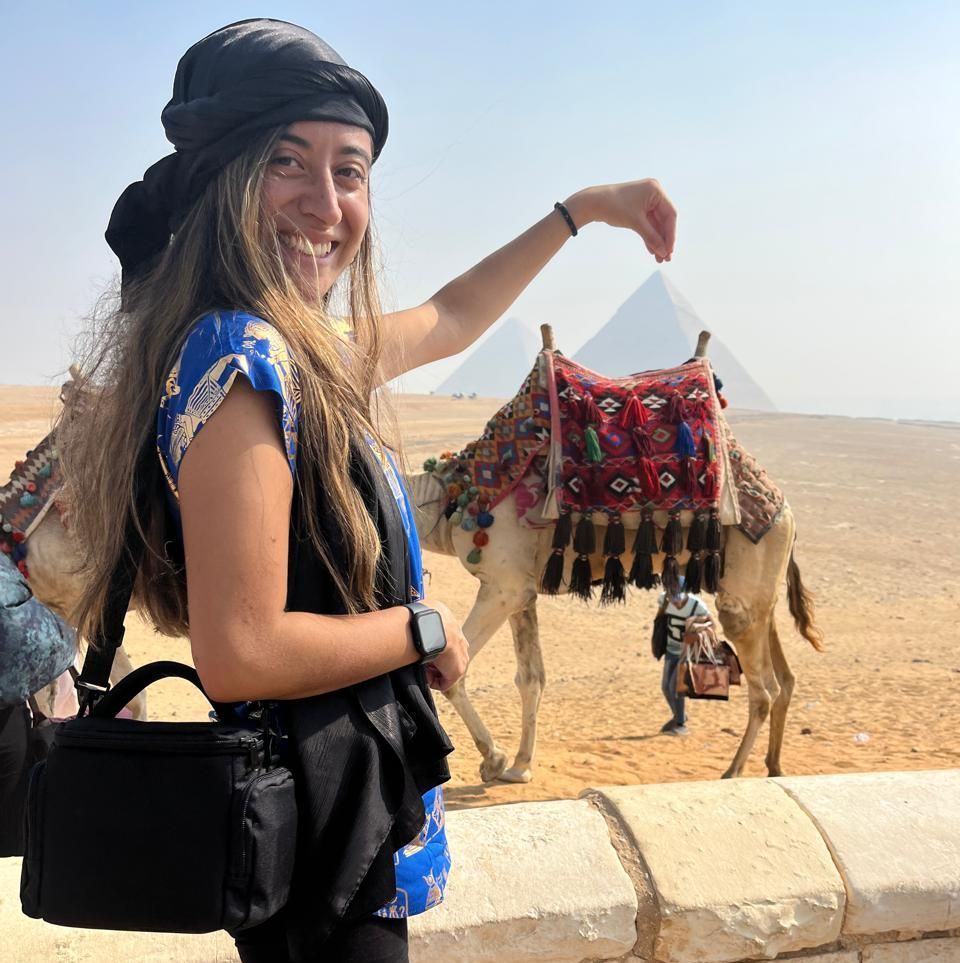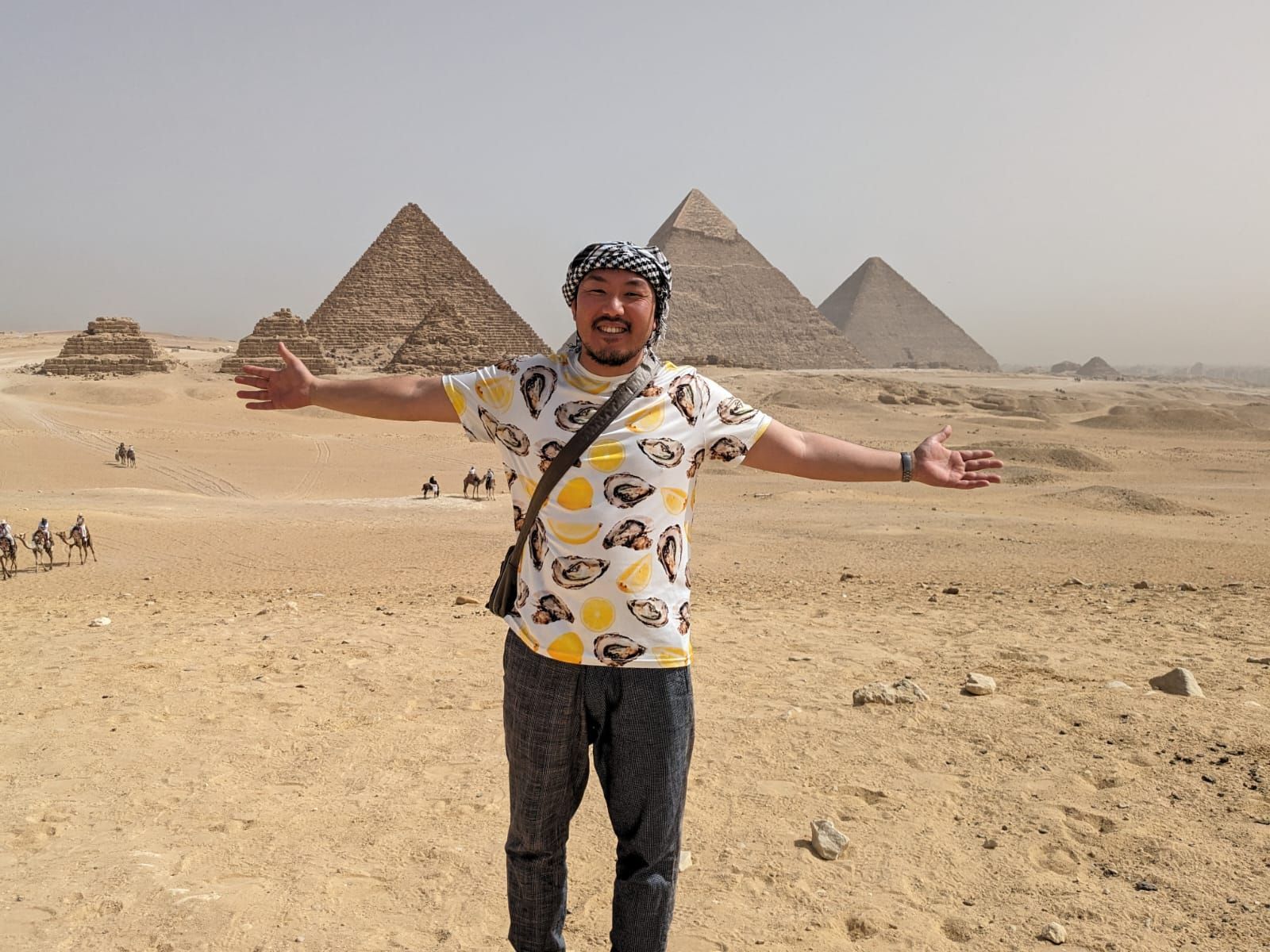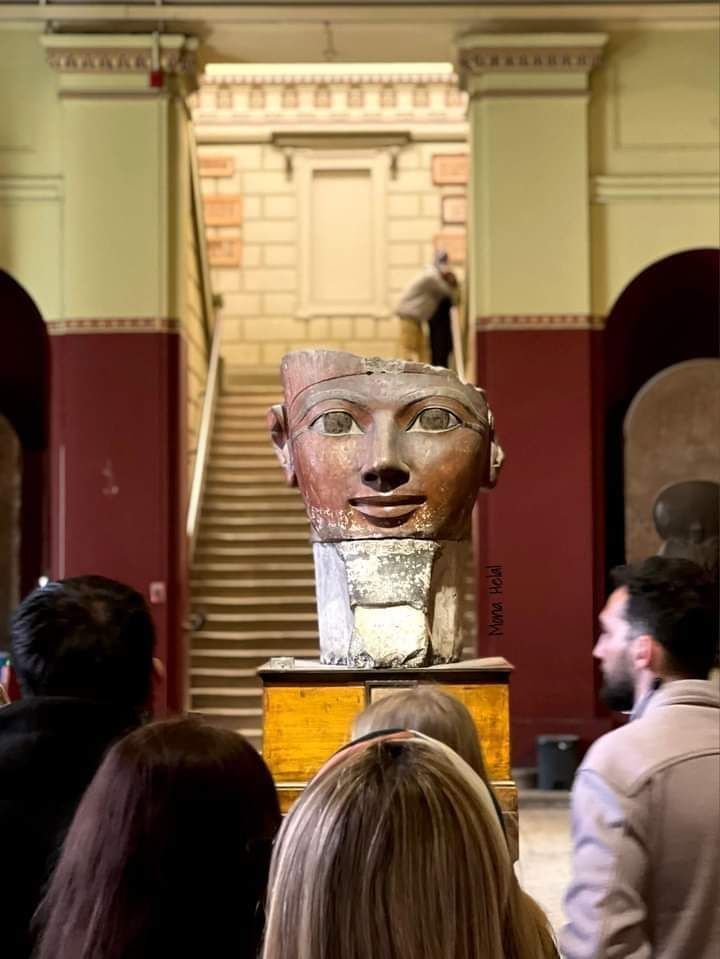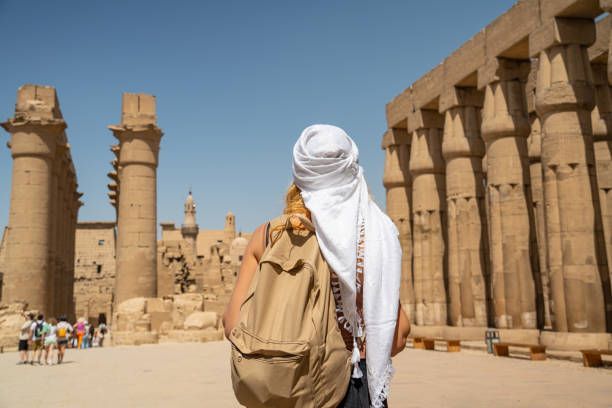Find the Most Beautiful & Historic Places Around Egypt
Egypt, a country linking northeast Africa with the Middle East, dates to the time of the pharaohs. Millennia-old monuments sit along the fertile Nile River Valley, including Giza's colossal
Pyramids and Great Sphinx as well as
Luxor's hieroglyph-lined Karnak Temple and Valley of the Kings tombs. The capital, Cairo, is home to Ottoman landmarks like
Muhammad Ali Mosque
and the
Egyptian Museum, a trove of antiquities.
The Pyramids of Giza in Egypt are the only one of the Seven Wonders of the Ancient World to survive into the modern era. Everything else has vanished or crumbled or been destroyed by man or nature, yet these massive monuments have stood the test of time and are still standing today.
The Pyramids and the Great Sphinx of Egypt
For many, Egypt’s pyramids and the Great Sphinx represent the ultimate travel bucket list item. Shrouded in mystery and one of the seven wonders of the ancient world, the pyramids are synonymous with Egypt. Likewise, their human-headed, lion-bodied neighbor is one of the first landmarks that comes to mind when you think about the Land of the Pharaohs.
I had dreamed of visiting Egypt for years just to stand in the shadow of some of the oldest, most recognized structures on the planet. Their history—both known and unknown—has fascinated Adam and me and lead to plenty of discussions about what it would be like to visit the pyramid complex in person. For me, the pyramids and the Sphinx were on par with standing before the moai of Easter Island, on the Great Wall of China, or on the ice in Antarctica. Those experiences were overwhelming in their personal significance for me, and I knew my visit to Giza would feel the same way. Additionally, in 2011 I just missed a chance to see them; weeks before I was set to depart for Cairo to attend a conference the event was cancelled after the country’s revolution made travel to the region undesirable. Since then, visiting has been a significant goal and a chance to reclaim an experience that took a long time to come back to me.
THE PYRAMIDS OF GIZA, EGYPT
The
pyramids of Giza are among the oldest manmade buildings in existence. Built around 2500 BC, they are located just to the south of bustling Cairo and about five miles (nine kilometers) west of the
Nile River; today, like all those centuries ago, 95 percent of Egypt’s population lives close to the Nile.
The pyramids are built on the Giza Plateau, and while most people know of the three largest pyramids—including the Great Pyramid—there are six other structures that are part of the complex and were built around the same time. Construction likely took close to 100 years, which meant five different pharaohs oversaw the work and between 15,000 and 40,000 workers were actively engaged on the project at any given time.
There are still many questions about how the pyramids were designed, the construction techniques necessary to build them, and how the materials were sourced. While there are some questions to which we may never have answers, we do know more about the origin of the pyramids thanks to records that have been found throughout the country. Most notably, in 2013 archaeologists discovered several papyrus scrolls hundreds of miles away that detailed how the Ancient Egyptians built the pyramids. Written primarily in hieroglyphics and now known as the Diary of Merer, the scrolls document how 200 workers journeyed more than 500 miles (850 meters) to Aswan in the southern part of the country to get red granite, which was then floated up the Nile and used to build the Great Pyramid.
Astronomy played a big role in Ancient Egypt, and the pyramids of Giza may also be rooted in a somewhat religious worship of the sky. Each of the three pyramids—Khufu, Khafre, and Menkaure—are precisely oriented to the north, south, east, and west, as if the workers had used a compass to position them. The three pyramids are also closely aligned to the three stars that are found in the Orion constellation, specifically in his belt. Orion is linked to the Egyptian god Osiris, the god of the afterlife and rebirth, which may tie into the purpose of the pyramid complex.
The pyramids of Giza are interesting in comparison to other structures found throughout the country. While pyramids were often used as tombs for Egypt’s kings and queens, no tombs, mummies, or human remains were found in Giza’s pyramid complex. Additionally, the interior is almost devoid of hieroglyphics that decorate tombs in Luxor, Aswan, and other locations in Egypt. Some theories suggest the tombs were raided centuries ago, and the bodies and valuables were removed at that time, and others note that the pyramids were once encased in limestone that bore hieroglyphics but have long since been removed. With well over 4,000 years between their initial construction and today’s theories, these mysteries may remain for quite some time.
Beyond the pyramids of Khufu, Khafre, and Menkaure are six additional pyramids. Three of them are known as the Queen’s Pyramids, which belonged to Khufu’s mother, Khafre’s mother, and Khufu’s wife. The others served as temples or tombs. The pyramid complex also includes two extensive cemeteries to the east and west of the Pyramid of Khufu where a number of royalty were buried.
THE SPHINX
The Giza plateau is also home to the Great Sphinx, the pyramids’ famous neighbor.Although the Sphinx looms large even next to the enormous pyramids just a few hundred yards away, the questions about how and why it came into existence feel even bigger. The most widely believed theory suggests the Sphinx was built at the same time as the pyramids and boasts the face of Pharaoh Khafre. Many other theories exist, though, with some stating the face might be Khufu’s instead and some suggesting the head isn’t intended to be human but rather a dog or Anubis, which was the Egyptian god of the dead.
At one point the Sphinx had both a nose and a beard, but today both are missing. Although a favorite theory proposes that Napoleon’s army shot a cannonball into the Sphinx’s nose (a theory that has been disproven thanks to noseless descriptions that predate Napoleon’s time in Egypt), a more accepted theory recounts how the nose was destroyed in the 1370s by an Egyptian who was dismayed by people bringing offerings to the Sphinx and worshiping as if it might be a god. There may be some truth to that idea; the Sphinx has the body of a lion, which is connected to sun worship and the Leo constellation.
Between the Sphinx’s paws is a more modern addition: the Dream Stele. The Dream Stele is a large stone tablet installed by Ancient Egyptian pharaoh Thutmose IV. The inscription has not been completely translated, but through prose it tells a story that suggests the sun god Ra bestowed the pharaohship upon him. According to the Dream Stele, prince Thutmose went to the Sphinx at midday and fell asleep while resting in the shadow of the Sphinx. The Sphinx then spoke directly to him and promised him kingship over the land if he would unearth the body of the Sphinx by removing the sand that had buried it up to the neck for generations.
While it isn’t possible to approach the Dream Stele to see it up close, it is clearly visible from any viewing platform where you can see the Sphinx.
Luxor And Aswan
Luxor and Aswan are two of Egypt's most captivating cities, brimming with history, culture, and stunning landscapes. Often referred to as the world's greatest open-air museum, Luxor is home to remarkable ancient sites that transport visitors back to the time of the Pharaohs.
Karnak
Temple, one of the largest temple complexes in the world, is a must-visit in Luxor. Its towering columns and intricate hieroglyphics offer a glimpse into the spiritual life of ancient Egyptians. Nearby, the Valley of the Kings houses the tombs of legendary pharaohs, including the famous Tutankhamun. Exploring these tombs provides a profound connection to the past, showcasing the artistry and beliefs of ancient Egyptian civilization.
Just a short journey south lies Aswan, known for its serene landscapes and the stunning Nile River. The Philae Temple, dedicated to the goddess Isis, is beautifully located on an island and can be reached by a scenic boat ride. Aswan is also famous for the High Dam, a marvel of modern engineering that controls the Nile’s floods and provides hydroelectric power.
A cruise along the Nile between Luxor and Aswan offers breathtaking views of lush greenery contrasted against the arid desert landscape, dotted with ancient monuments. Visitors can enjoy the tranquil beauty of the river while exploring the local culture, including traditional Nubian villages.
Together, Luxor and Aswan provide an unforgettable journey through Egypt's rich history, making them essential stops for anyone looking to immerse themselves in the wonders of this ancient land.
Here are the links for our Egypt day tours by destination:
https://www.pocket-cairo-tours.net/egypt-travel-packages/egypt-holidays/cairo-tour-packages
https://www.pocket-cairo-tours.net/Cairo-Top-Tours-Sightseeing-Trips
https://www.pocket-cairo-tours.net/egypt-tours-egypt-tour-packages
https://www.pocket-cairo-tours.net/cairo-day-tours
https://www.pocket-cairo-tours.net/things-to-do-in-cairo
https://www.pocket-cairo-tours.net/nile-cruise-luxor-and-aswan
FAQs
Is it safe to visit Egypt now?
Reconsider travel to Egypt due to terrorism. Exercise increased caution in Egypt due to the Embassy's limited ability to assist dual national U.S.-Egyptian citizens who are arrested or detained. Some areas have increased risk. Read the entire Travel Advisory.
Can Brits still travel to Egypt?
FCDO advises against all but essential travel to the northern part of the South Sinai Governorate, beyond the St Catherine-Nuweibaa road, except for the coastal areas along the west and east of the peninsula.
How many Americans travel to Egypt each year?
In 2023, the number of American tourists arriving in Egypt amounted to 676,000, compared to 322,000 in the previous year.Dec 30, 2024
What are the entry requirements for Egypt?
To enter Egypt, your passport must have an 'expiry date' at least 6 months after the date you arrive and have at least one blank page. Check with your travel provider that your passport and other travel documents meet requirements. Renew your passport if you need to.
When not to travel to Egypt?
We'd recommend avoiding Egypt tours during July and August unless you're headed for the coast. It's simply uncomfortably hot, and as the climate crisis continues, that will only get worse. The lack of rain also puts great strain on water supplies, which are often prioritised for tourists over local people.
Which country visits Egypt the most?
Which countries visit Egypt the most? The leading sources of foreign tourists to Egypt in 2024 were Saudi Arabia, closely followed by Libya, Germany, Israel and Sudan.Nov 19, 2024
Where do more than 90% of Egypt's people live?
About 90% of Egypt's population lives along the Nile River, with the waterway providing nearly all Egyptians with drinking water.
What are the rules for tourists in Egypt?
Dress conservatively. Knee-length or longer dresses and long sleeves are preferable for women, and men should not wear shorts outside tourist areas. Respect religious and social traditions to avoid offending local sensitivities. Overt public displays of intimate affection are frowned upon in Egyptian culture.
Is it safe to visit the pyramids?
Be cautious in tourist areas, where scammers and touts target foreign nationals. Touts may confront tourists at popular tourist sites, such as the Giza pyramids, and aggressively ask for money or business. This can even happen when you're in a car or taxi.
Is it safe to walk around Cairo?
Walking alone in Cairo is generally safe, especially during the day in tourist-friendly areas. However, you will most likely be approached by scammers. It's time to forget your usual politeness and learn to say 'no.
Can a non resident open a bank account in Egypt?
Can a Foreigner Open a Bank Account in Egypt? Yes, foreigners can open a bank account in Egypt.
How much to tip in Egypt?
In restaurants, it is customary to tip between 10-15% of the total bill. For hotel staff, such as housekeeping, bellhops, and doormen, a tip of 20-30 Egyptian pounds per service is appropriate. For tour guides, a tip of 100-200 Egyptian pounds per day is customary, depending on the length and quality of the tour.
Title or Question
Describe the item or answer the question so that site visitors who are interested get more information. You can emphasize this text with bullets, italics or bold, and add links.
Still have a question?
Egypt Travel Tips
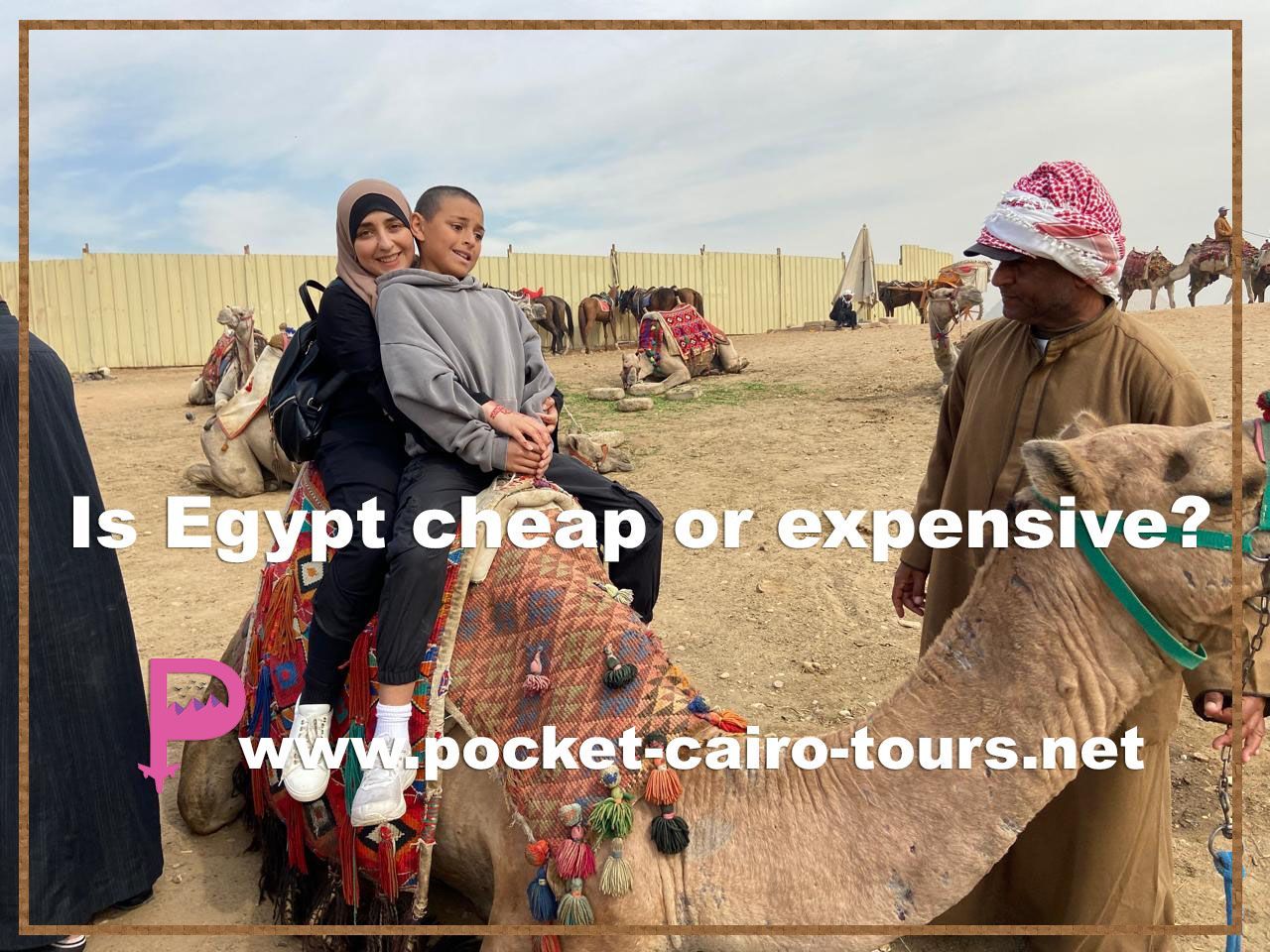
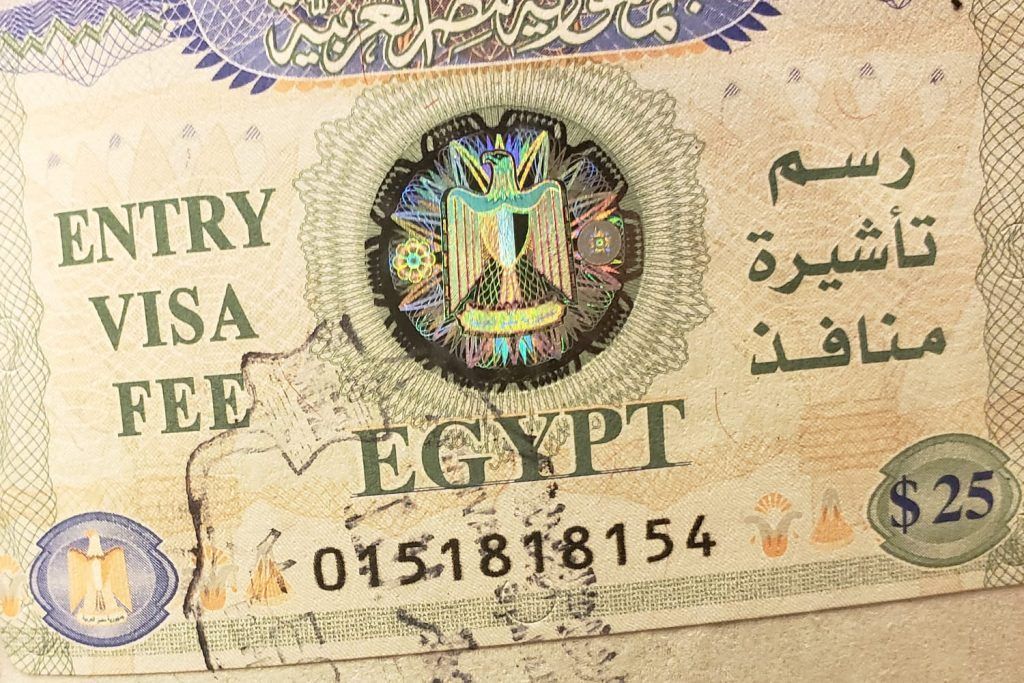
USEFUL LINKS
FOLLOW US
PAYMENT METHODS
All Rights Reserved | Pocket Cairo Tours
















